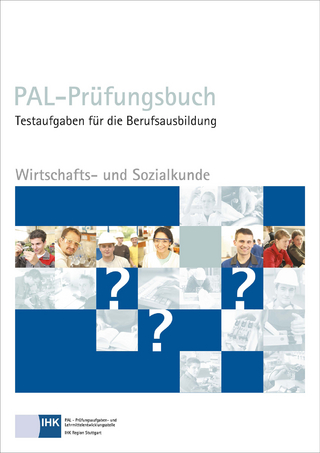
How to Be a Happy Academic
SAGE Publications Ltd (Verlag)
978-1-4739-7879-9 (ISBN)
Want to be an effective, successful and happy academic? This book helps you hone your skills, showcase your strengths, and manage all the professional aspects of academic life. With their focus on life-long learning and positive reflection, Alex and Bailey encourage you to focus on your own behaviours and personal challenges and help you to find real world solutions to your problems or concerns.
Weaving inspirational stories, the best of research and theory, along with pragmatic advice from successful academics, this book provides step-by-step guidance and simple tools to help you better meet the demands of modern academia, including:
Optimising your effectiveness, priorities & strategy
Workflow & managing workload
Interpersonal relationships, and how to influence
Developing your writing, presenting and teaching skills
Getting your work/life balance right.
Clear, practical and refreshingly positive this book inspires you to build the career you want in academia.
Alex Clark, PhD, is Associate Vice President (Research) at the University of Alberta, and World Economic Forum Young Global Leader. He fulfils leadership roles with a number of national research funding bodies across Canada. He regularly writes on academic career development, growth, and leadership, and has led workshops all over the world for a decade for researchers from all career stages on academic effectiveness, writing, and research skills. He speaks nationally and internationally to young scientists from across disciplines on academic career issues, including skills, teamwork, and mentorship. Alex’s research has been published in some of the world’s most influential journals, including: The Lancet, British Medical Journal, Journal of American College of Cardiology, and Social Science & Medicine. Bailey Sousa, PMP, is the Director of the International Institute for Qualitative Methodology (IIQM) based at the University of Alberta, an entrepreneur, and workplace effectiveness advocate. Bailey has worked as a team leader managing complex projects for over a decade in a variety of entrepreneurial ventures and roles in corporate, social enterprise, and academic settings. Her current role enables her to connect and connect with academics internationally, giving her a global perspective on effectiveness and the challenges faced universally. Bailey’s interests and contributions relate to workplace and academic effectiveness, leadership, and teamwork in complex settings; she facilitates workshops all over the word in this area. In 2015, she was also recognized as one of Edmonton’s Avenue Magazine’s ‘Top 40 Under 40’ for her contributions in her work and to her city.
Introduction
Why is this Book Needed
Get the Most from this Book
Doing the Right Things Right: The Success Pyramid and The Core
Language and Terminology Issues
Theoretical Basis and Features
Chapter 1: Academic Knowledge Work as Extreme Knowledge Work
What is Academic Knowledge Work?
The Nature of Academic Knowledge Work
The Challenge of ′Extreme Knowledge Work′ for Academic Workers
Section One: Choosing the Right Academic Work: The Success Pyramid
Chapter 2: Values in Academic Work
Values and Identity in Academic Work and Workers
Exploring Your Values
Values and Integrity
Reactions to Value Conflicts in Academic Workplaces
First Steps to Workable Strain: Increase Your Values Literacy
Chapter 3: Success and Its Indicators
What Success Looks Like in Academic Work
Success Is Not Equal (Especially Around Gender)
Success Is About Work and Life
Success and Quality Are Different
Is Success Subjective or Objective?
Approaching Success in Academic Knowledge Work: Occluded Games and Genres
Success Indicators and The Success Pyramid
Success Indicators over Academic Careers
Challenges in Selecting Success Indicators
Chapter 4: Doing the Right Things I: Effectiveness, Priorities, and Strategy
Priorities: The Key to Effectiveness
What Is Strategy?
Common Challenges with Good Strategy
Chapter 5: Doing the Right Things II: Goals, Tasks and Time
Time in Academic Work
Goals in Academic Work
Common Challenges when Goal Setting
Tasks in Academic Work
Handling Tasks
Common Challenges with Tasks
Section Two: Developing The Core
Chapter 6: Creativity: Adding the Vital Spark
Being and Staying Creative or ‘The Battle for Creativity’
Threats to Creativity
Chapter 7: Human Work and Self-Work
The Scope and Nature of Human Work
What Affects Human Work?
Human Work Done Well: First Steps
Relationships in Academic Work
Building Relational Networks
Feedback
Teams and Working Groups
Conflict
Human Work, Self-Work: A Journey Without End
Chapter 8: Learning: Success, Failure and the Growth Mindset
Mindsets in Academic Work
Learning for Growing: What and Why
Failure: Necessary and Useful
Successful Failure: A Six-Step Approach
Chapter 9: Influence: Persuasion and Connection
Rhetoric: The Basis for Better Influence
Invention: Arguments, audience, and success
Arrangement, style, and delivery: Connection and identification
Memory: Practised, effortless spontaneity
Above all: Be self-aware, but be yourself
Chapter 10: Write Anything Better
The Vulnerability of Writing in Academic Work
Different Types of Writing in Academic Work
The Quality-Prevalence Paradox of Academic Writing
The Limitations of Trick, Tips and Social Media
Genre: A Different Approach to Academic Writing
Chapter 11: Developing Better Habits and Systems
Everyday Tasks: Marginal and Fundamental Gains
Taming Everyday Tasks
Other Systems, Routines, and Habits
Section Three: Bringing It All Together
Chapter 12: Projections, Introspections, and Reflections on Academic Work
Thinking Forward: The Future of Academic Work
Thinking Inwardly: Reading Your Own Reactions
Thinking On: What We Learned Writing this Book
| Erscheinungsdatum | 11.07.2018 |
|---|---|
| Verlagsort | London |
| Sprache | englisch |
| Maße | 170 x 242 mm |
| Gewicht | 570 g |
| Themenwelt | Sozialwissenschaften ► Pädagogik ► Berufspädagogik |
| ISBN-10 | 1-4739-7879-3 / 1473978793 |
| ISBN-13 | 978-1-4739-7879-9 / 9781473978799 |
| Zustand | Neuware |
| Informationen gemäß Produktsicherheitsverordnung (GPSR) | |
| Haben Sie eine Frage zum Produkt? |
aus dem Bereich


